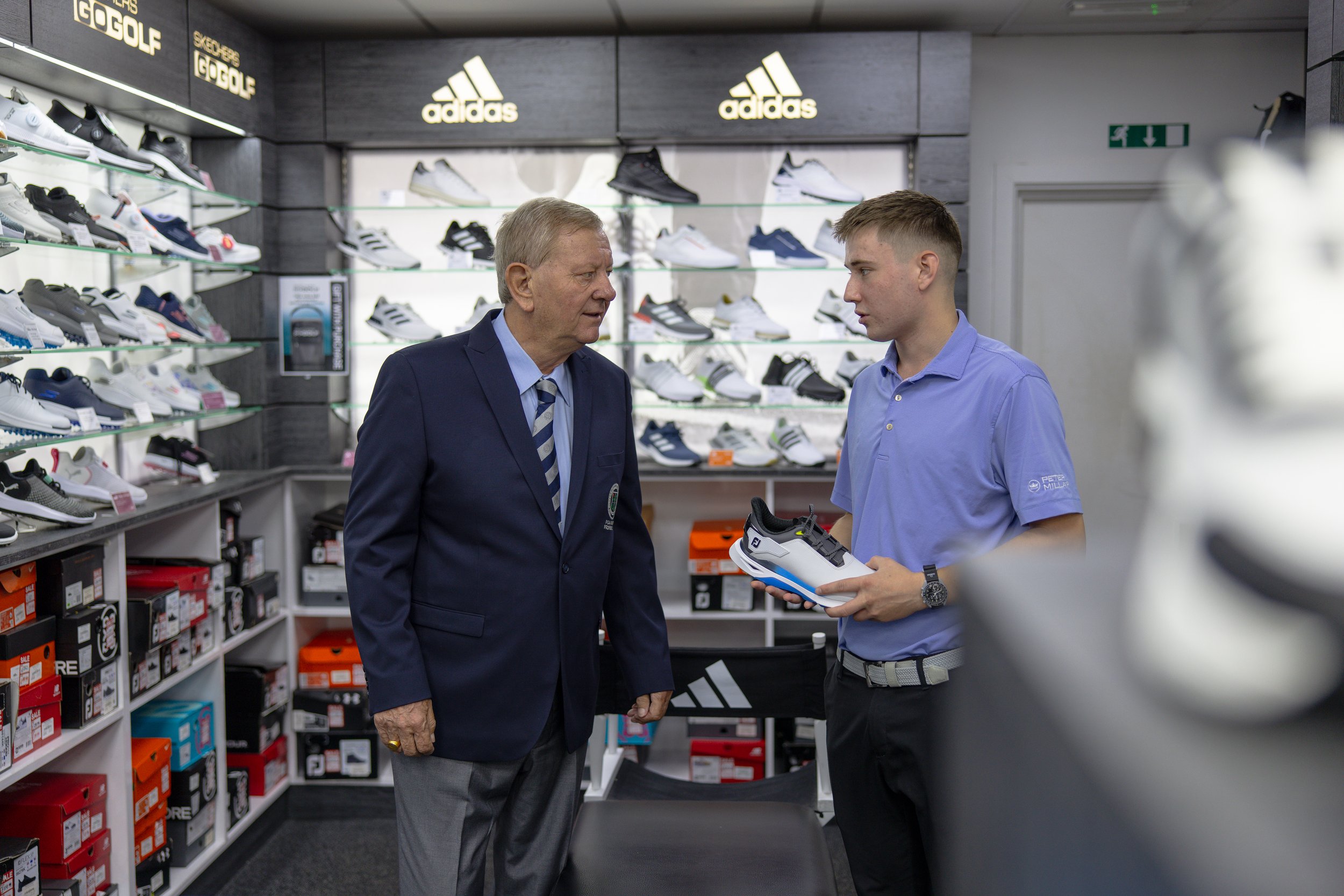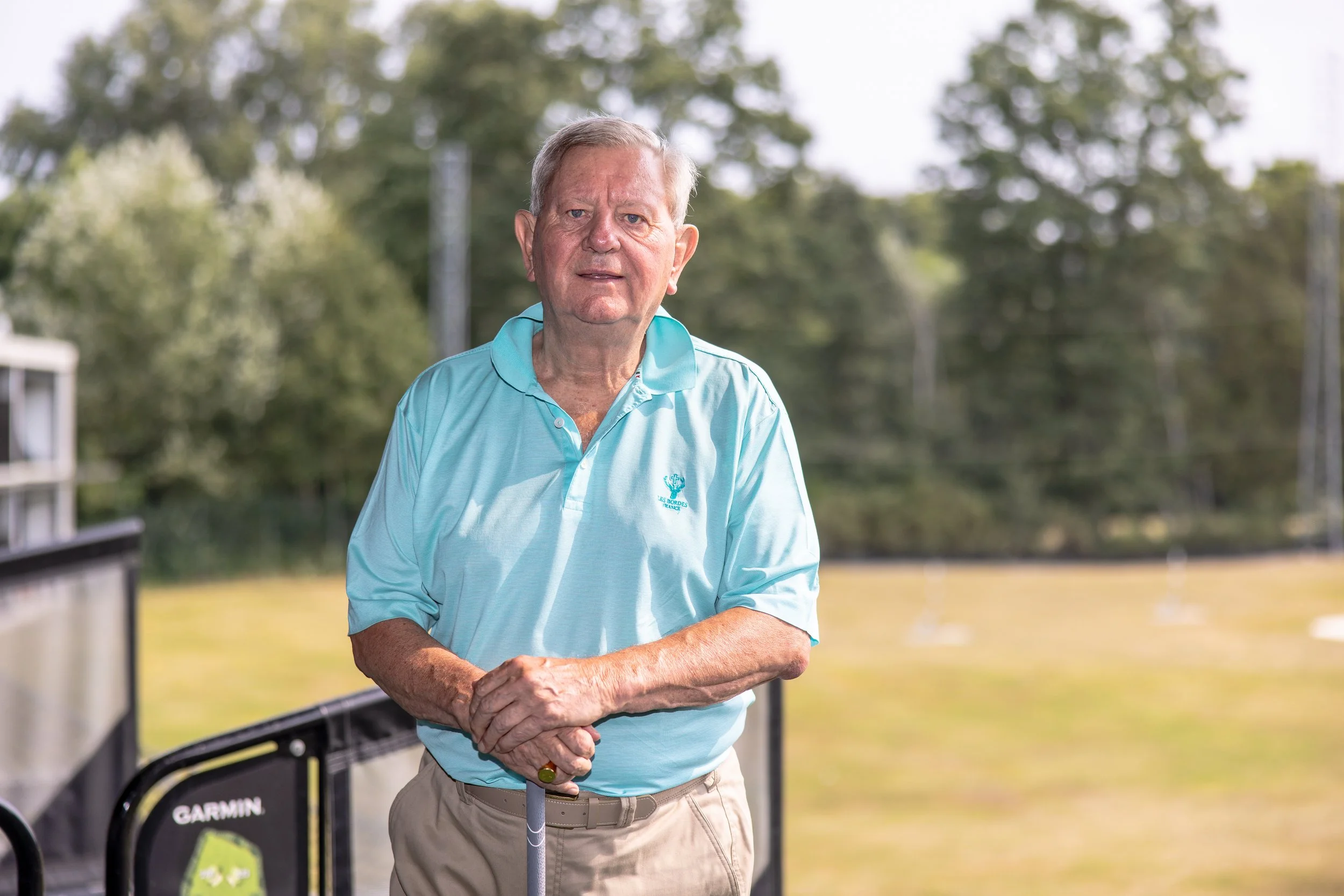INTERVIEW
Doug McClelland:
The king of golf retail
The PGA Master Professional and founder of Europe’s biggest club retail store at Silvermere in Surrey reflects on his successful business career in golf

As the former owner of the busiest golf retail store in Europe, Doug McClelland may fairly be considered as the greatest authority in his field. After 40 years in the business, McClelland retired from Silvermere, in Surrey, in 2020 and now runs a successful consultancy business, helping golf brands grow and flourish. Here, he discusses how he built the business and what kept him ahead of the game in a rapidly changing retail landscape.
Did you get any business advice when you first started out?
I married an American girl and I used to travel a lot to California as her family were from San Diego. We used to go out for the whole of the summer holidays as a family for six or seven weeks. In that time I visited all the big golf retail stores. I thought if we can get this big type of golf store operation into England it would be a success. That was 40 years ago and back then, whatever happened in America happened in the UK five years later. I went to a place called Las Vegas Tennis and Golf, which was a big franchise operation. I picked the brains of all the guys who had the franchises with them. I went to three or four of those places and I’ve still got the notes I made about what they did and how they got the custom. They had the most extensive product range and the staff were all so knowledgeable about that gear. So when I got back I made sure that I organised product meetings with all of the suppliers and my staff, because they had to know the products that they were selling. All of this now is normal, but 40 years ago it wasn’t. So I had a bit of an edge in terms of thinking when I picked the brains of all these franchises and that was the basis from which I built up and structured my business.
Under your ownership, Silvermere was officially recognised as the busiest retail outlet on any golf complex in Europe. What were the keys to your success?
Service driven at the quality end of the market. My motto for the golf goods was “customer, customer, customer – service, service, service.” It was drilled into the staff. The customers pay your wages, nobody else. Repeat business is the secret of growth. It was all about retaining all of our customers so we didn’t have to advertise to get more customers. So we built up a really strong database. I had a great belief in instant service. What I mean by that is if somebody walked in and wanted something, we had it in stock. If somebody wanted a lesson, we had somebody there to give them one. If somebody wanted their club repaired, we had the facility to do it on the spot. When I left Silvermere I had 25 golf pros working for me, 12 of those were custom-fitters, because we had four custom-fit bays. We were busy all the time. We were open from 7am in the morning until 10pm at night.
“Repeat business is the secret of growth. It was all about retaining all of our customers so we didn’t have to advertise to get more customers”
In your 40 years in the golf retail business what was your greatest learning?
To treat every customer like gold dust. With the choice customers have now on the internet, they can take their business anywhere at the press of a button and buy. Websites have everything. It’s very, very difficult for the club professional to compete with that, so they’ve really got to make themselves an indispensable part of the golf club. Eighteen years ago, The PGA asked me to consult on the role of the pro in the golf club and I said: “Look, they’ve got to have someone to cut the greens. They’ve got to have someone to cook the food, they’ve got to have someone to serve the beer and run the bar. They’ve got to have someone to run the whole club. The most disposable person of the whole lot is the golf pro.”
So as the golf pro you’ve got to make yourself indispensable. You’ve got to go that extra yard. You’ve got to be an integral part of the golf club. You are the main link into the members and the pro shop should be the hub of the club. At the end of the day everybody wants to play better. Nowadays, with the equipment that is out there, you can buy a better game. The equipment changes in the last few years have been amazing, there’s no question about it. But the only way you can really learn golf is from a qualified PGA Professional. That’s your USP. If you can cure a member’s slice, you are like God to them. They all want to enjoy themselves and they all want to get their handicap down. The person to do that for them is undoubtedly the golf pro.
“The chief executive at Burberry popped in to see me one day. I persuaded him to build a shop-in-shop – but the only problem was I had to fill it. My opening order was £45k back in the mid 1980s”
You employed 25 PGA Professionals at Silvermere. What benefits did hiring PGA Pros add to your business
Credibility. The PGA are widely accepted as a brand that knows what they are doing. It’s like getting qualified as a doctor. No-one is going to take you seriously until you get those letters after your name. It’s the same in many professions.
You must be extremely proud of your status – the highest rank of Master PGA Professional?
It’s great. You can’t get a higher accolade. I’m very proud to have achieved it. I’ve got a great career behind me, I look back and I think it was a job well done. I’d like to think that I had an input into The PGA making strides as an Association.
Finally, tell us about the time that Silvermere became a Burberry stockist
I used to belong to Hartsbourne Country Club, a wealthy club in north London. Stanley Peacock, who was the chief executive at Burberry, was a member. He heard I was at Silvermere and popped in to see me one day by chance. I persuaded him to build a shop-in-shop – but the only problem was I had to fill it.
My opening order was £45k back in the mid 1980s. Not many pros would get a Burberry concession but he believed in me as a retailer.
It was a massive commitment from me but I knew clothing was the way forward – 10 per cent of the nation played golf and 100 per cent of the nation wore clothes!


Get golf business insights straight to your inbox
Sign up for the first look at the latest news, features, exclusive interviews and podcast episodes with our monthly newsletter

